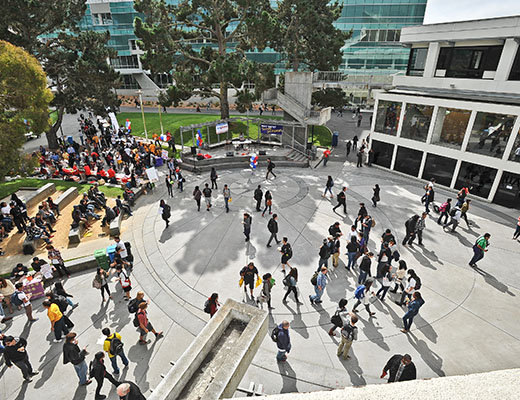The Sociology program at San Francisco State is committed to critical analysis of societies, with particular emphasis on inequalities, injustices and processes of social change. Our primary mission is to provide students with the theoretical and methodological skills needed to better understand, critique, and contribute to the worlds in which they live. The sociology major prepares students for a broad range of career paths, including employment in community-based organizations, local governments, human service agencies, and research settings. The major also provides students with a foundation to successfully pursue graduate work in multiple areas, including sociology, social work, public health, public administration, counseling, law, sexuality studies and other fields.

The Sociology faculty are engaged teachers, scholars and activists. We offer students the opportunity to study in small class environments, in many areas of sociology, including globalization; the environment; immigration; political economy; popular culture; race, class, gender and sexuality; LGBT studies; health and illness; deviance and social control; social movements; and social change. Faculty use diverse theoretical and methodological approaches to produce scholarship for academic and community audiences. Sociology faculty help students to develop strong writing skills and to become resources for one another. Faculty also support Project Rebound, which assists formerly incarcerated students in their journey through San Francisco State University.
After completing a Bachelor of Arts in Sociology, students will develop:
- Knowledge of the social, political, economic, and cultural forces shaping everyday life, and the processes and possibilities of social change.
- Awareness of the intersections of race, class, gender, sexuality and disability in local, national and global contexts,
- Skills in using both innovative and traditional techniques of analysis and empirical investigation.
- Abilities to communicate effectively their sociological knowledge and insights to a broad range of audiences.
- An understanding of the relationships between individual life chances and broader social structures — an ability that sociologist C. Wright Mills famously termed the “sociological imagination.”